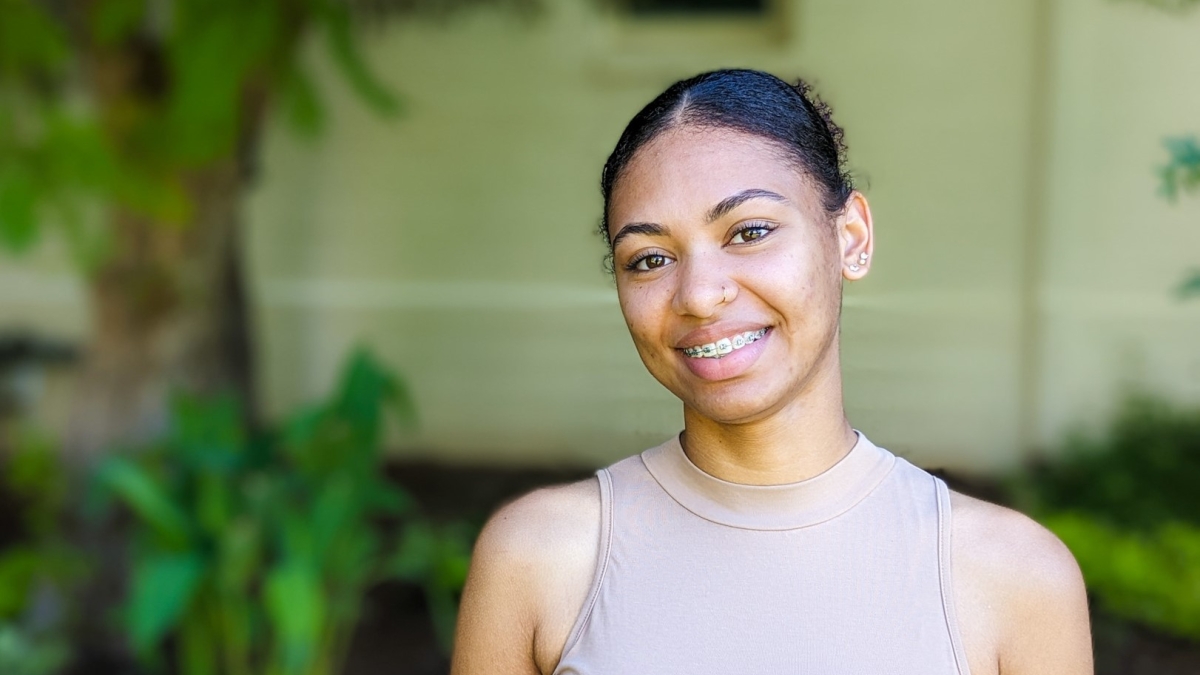Kyleigh GatesHaas, a student studying family and human development, psychology and early childhood education, spent eight weeks studying abroad in Berlin, Germany. She didn’t know what she would find, but went into the experience “looking forward to seeing a new culture and how different people live.”
It didn’t take long for the student to notice stark differences from what she was used to in America, such as a unique education system, free-range kids on public transportation and environmentally conscious shopping.
“It was interesting,” she said. “The schools were different just because they had the different grading system. So it was not just like your elementary, middle school and high school.”
The grading system she is referring to ranks student performance from a 1 to a 6, with a 1 being the best (excellent or “sehr gut”) and 5 or 6 being the worst (insufficient or “nicht genügend”). In addition, students can attend three different levels in Upper School, which offers students pathways to college preparation, certificates or trade schools instead of one single diploma.
GatesHaas was also shocked and fascinated that kids as young as kindergarten rode public transit to school alone.
“I think here (in America) you would not see that,” she says.
Researchers call this “independent mobility,” and some say it offers benefits for social and cognitive development. It helps that the Bahn, or German transportation system, is structured to be child friendly, offering free fares for children under 5 years old and discount opportunities for children aged 6–11 traveling alone.
But the differences in human behavior weren't just in children: GatesHaas noticed that adults had a different attitude in public than she was used to seeing at home, especially in grocery stores. Environmentalism seemed mainstream, and she noticed that reusable bags and cups were not only commonplace in stores but expected. This is due in part to the countrywide ban on lightweight plastic bags that went into effect on Jan. 1.
She felt right at home in this atmosphere, as she already has a habit of bringing her own reusable bags shopping. “It was just interesting to see it as the norm there (in Berlin),” she says. "Whereas I think here, when I go places like to Trader Joe's with my reusable bag, it's not as common."
Overall, GatesHaas says it was informative to see the culture and behavior in Berlin. As a student focusing on multiple human-centered degree programs, her experience brought insight into how people behave and develop in another country.
“That's kind of just all my major is, is people,” she says.
GatesHaas, whose trip was funded by the Gilman Scholarship, also recommends that anybody travel abroad if they have the means, even if they’re unsure or don’t know anyone. She went into the experience alone but came home with several new friends, and even drove to Kansas to visit one of them after the trip.
“It's super easy to find friends just because everyone is so excited to be there," she says. "Everyone's trying to meet everyone, so that was an amazing part.”
More Science and technology

Compact X-ray laser lab aims to reveal deep secrets of life, matter and energy
X-rays allow us to view inside the human body to diagnose broken bones and other hidden problems. More recent X-ray advances are…

Apollo lunar samples enable ASU researcher to pinpoint moon’s crystallization timeline
A team of researchers, including Arizona State University geochemist Melanie Barboni, in collaboration with scientists from The…

NASA launches space telescope to chart the sky and millions of galaxies
California’s Vandenberg Space Force Base was the site for Tuesday’s 8:10 p.m. launch of the NASA SPHEREx mission aboard a SpaceX…


